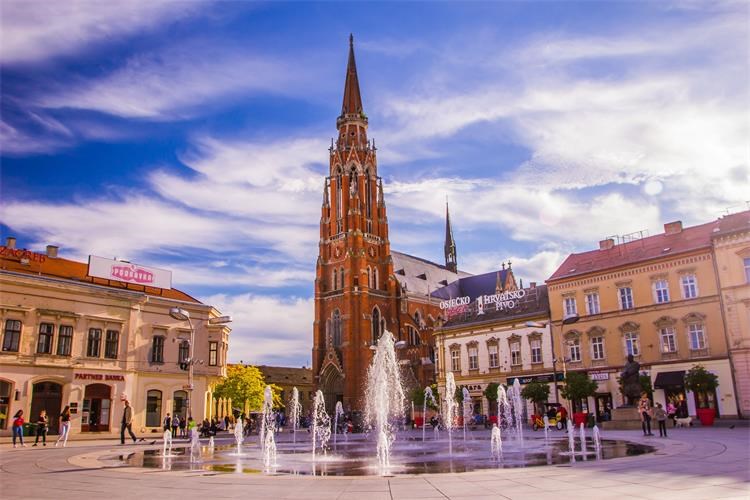- Published: 23.01.2020.
Osijek designated first Croatian 5G city
The Croatian government on Thursday decided that Osijek would be the first 5G city in the country, which Prime Minister Andrej Plenkovic described as a very good decision, notably in the context of the government's broader policy that puts emphasis on the eastern region of Slavonia and Osijek.
Designating the first Croatian 5G city is part of the overall policy of the European Commission, which back in 2016 defined, as part of its 5G for Europe Action Plan, guidelines for encouraging the development of infrastructure and 5G mobile communications services in the period until 2020.
This means that by the end of this year each member-country should designate at least one city to introduce the first 5G network and fully commercial 5G services, said Sea, Transport and Infrastructure Minister Oleg Butkovic, whose ministry proposed designating Osijek the first 5G city in Croatia.
"The EC's 5G action plan is part of the EU's Digital Single Market Strategy, whose goals include the creation of an environment conducive to introducing very high-capacity networks as generators of the digital economy," said Butkovic.
He said the first Croatian 5G city was selected by a task force comprising representatives of the ministry, the HAKOM regulator, and all three mobile network operators in Croatia - HT, A1 Hrvatska and Tele2 Hrvatska.
Apart from Osijek, the cities of Bjelovar, Karlovac and Rijeka, too, expressed the wish to become 5G cities and the task force decided, based on the cities' territory, population, terrain configuration and possibilities of 5G technology application, that Osijek should be designated the first 5G city, said Butkovic.
PM Plenkovic said the government's decision was very good, notably in the context of a major investment by Ericsson Nikola Tesla company in Osijek.
Gov't sends amendments to laws on central bank and credit institutions to parliament
The government forwarded its amendments to the laws on the Croatian National Bank (HNB) and credit institutions to parliament on Thursday. The proposed amendments are important in the context of euro adoption and letters of intent to join European Exchange Rate Mechanism II and the banking union.
Presenting the bill at a cabinet meeting, Finance Minister Zdravko Maric recalled that the letters of intent included an action plan with reform measures that needed to be implemented by May this year, when the European Central Bank (ECB) is expected to decide on Croatia's entry into the banking union.
Maric said that the ECB had begun a comprehensive assessment of five Croatian banks and that based on its results it would decide on establishing close cooperation with the HNB.
The proposed amendments are also aimed at enabling Croatia's entry into the Single Resolution Mechanism and further harmonising the provisions that will come into force on the date of adoption of the euro as legal tender in Croatia.
Text: Hina
